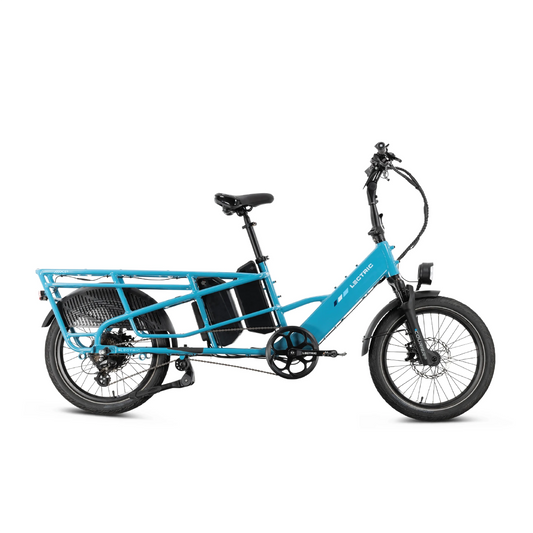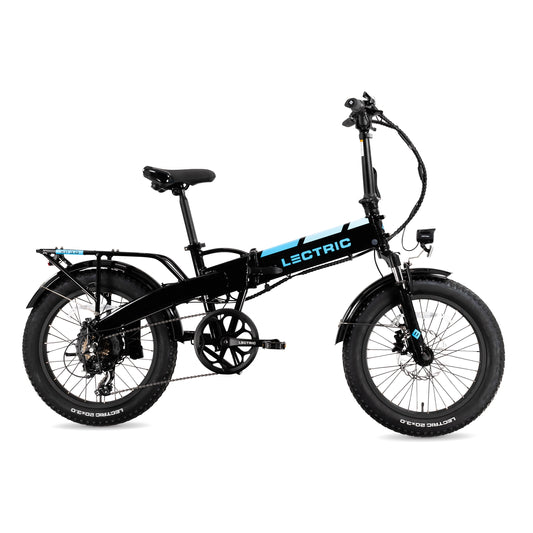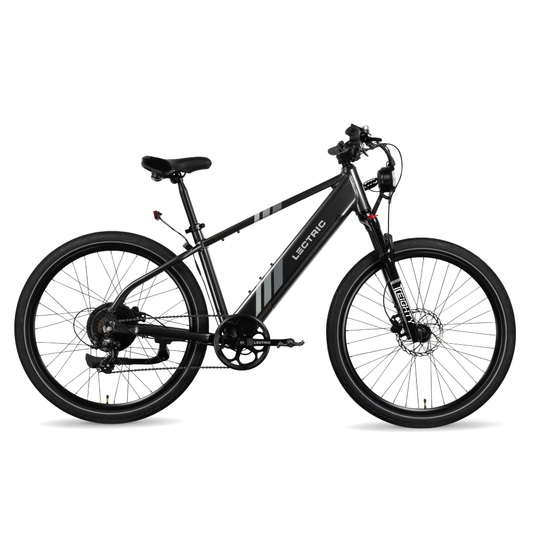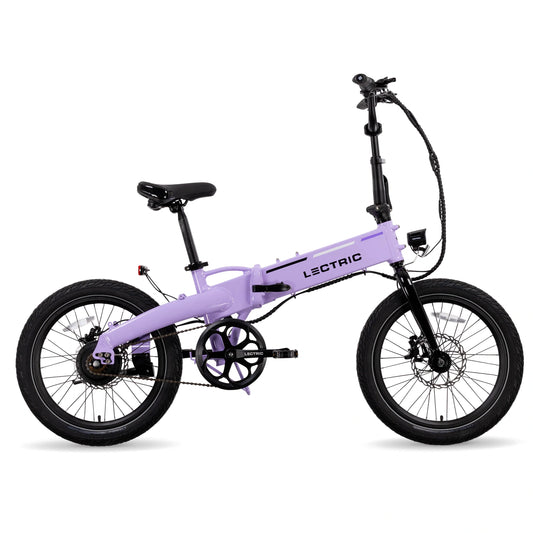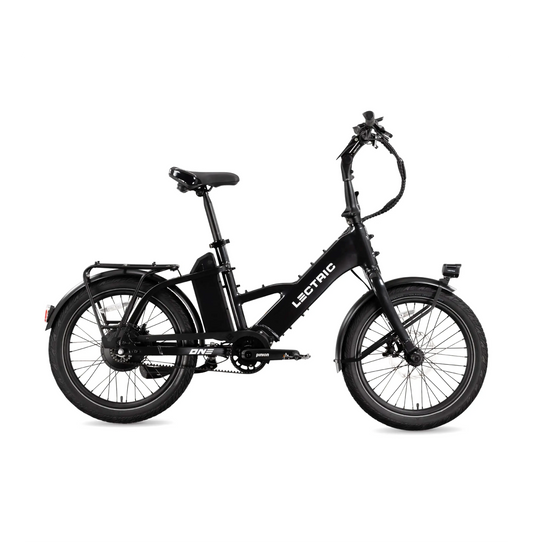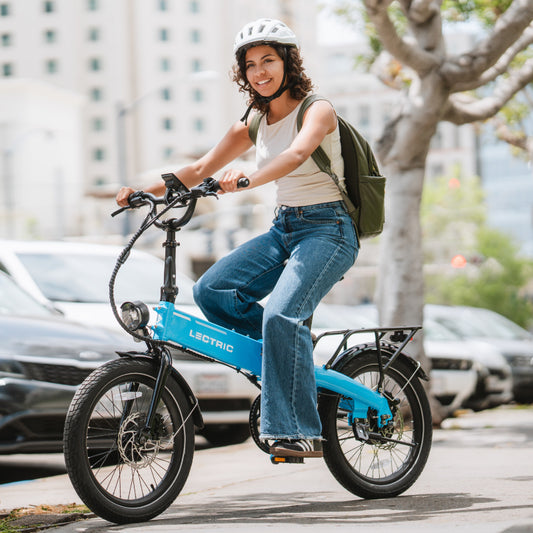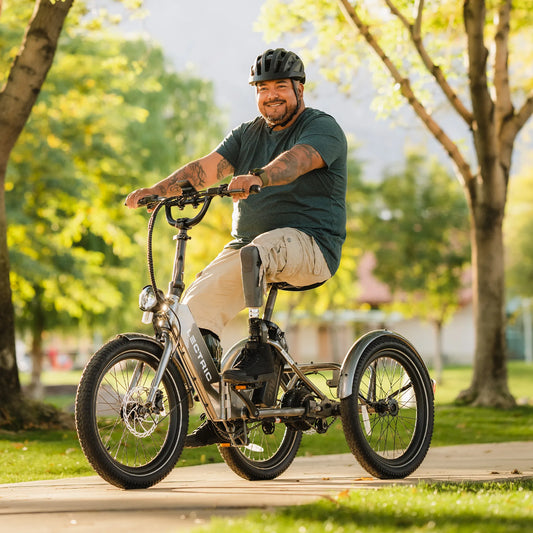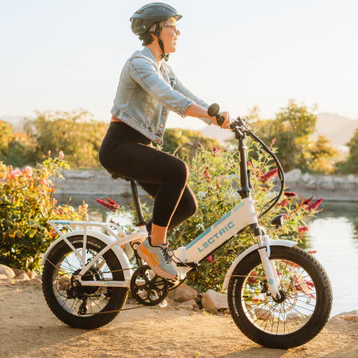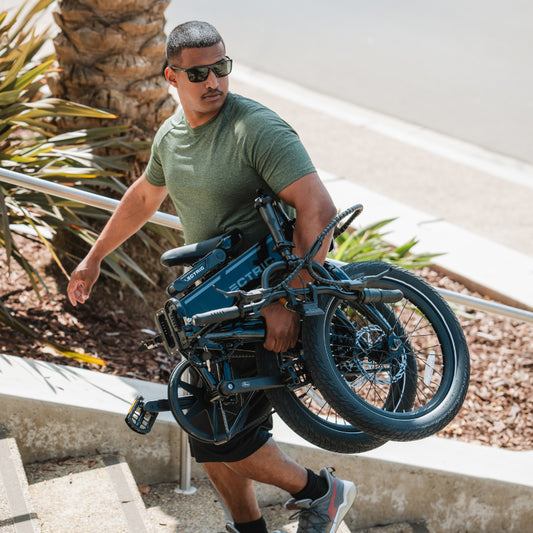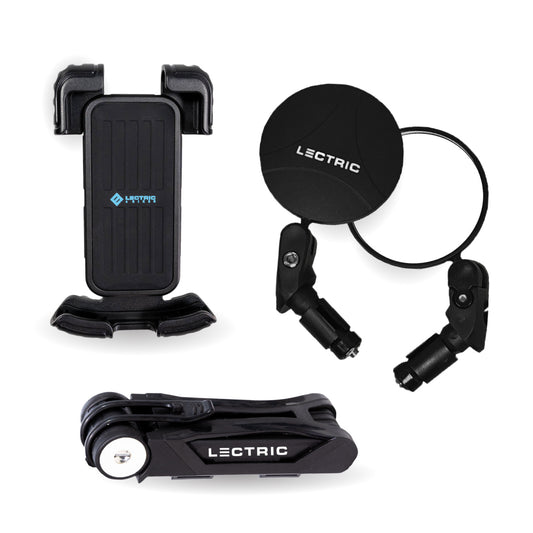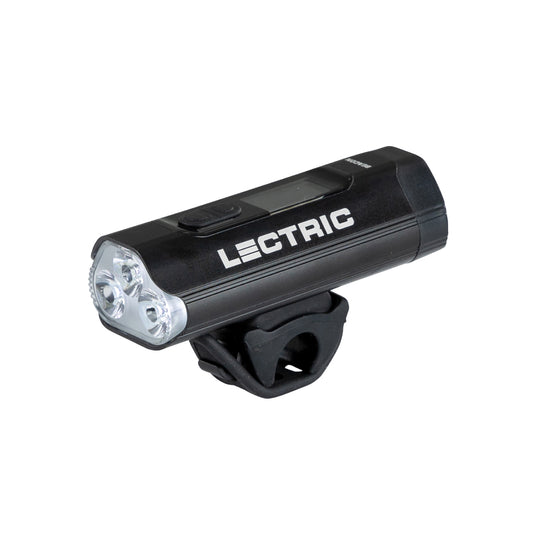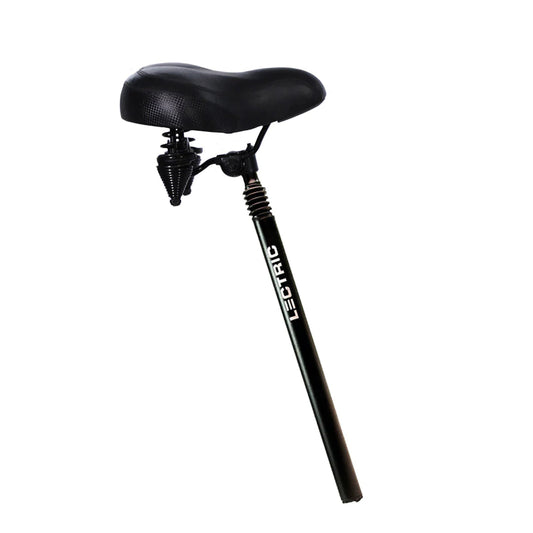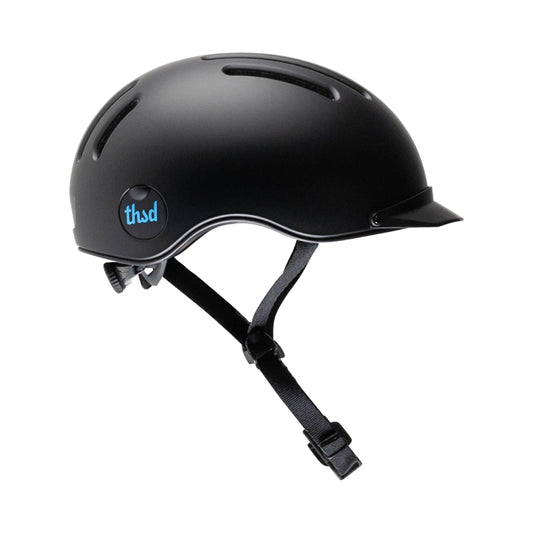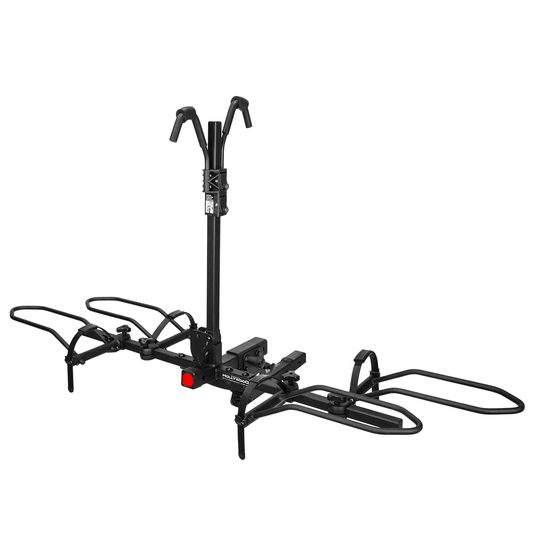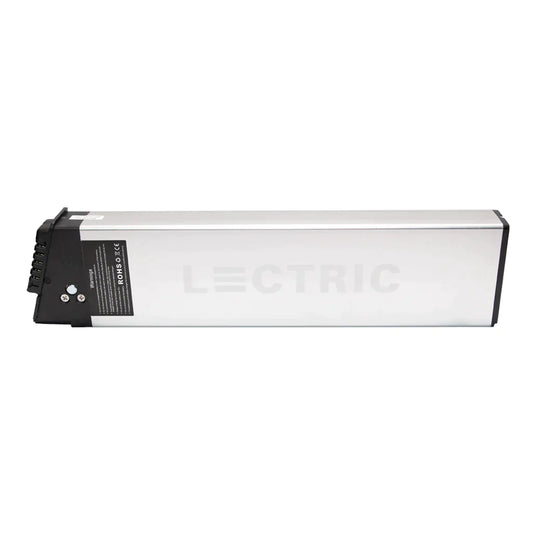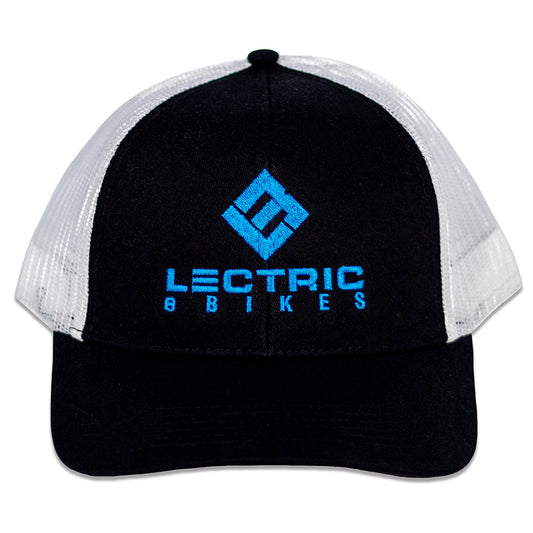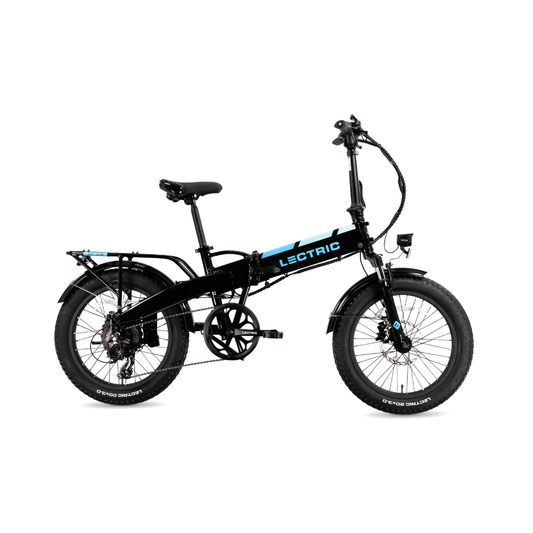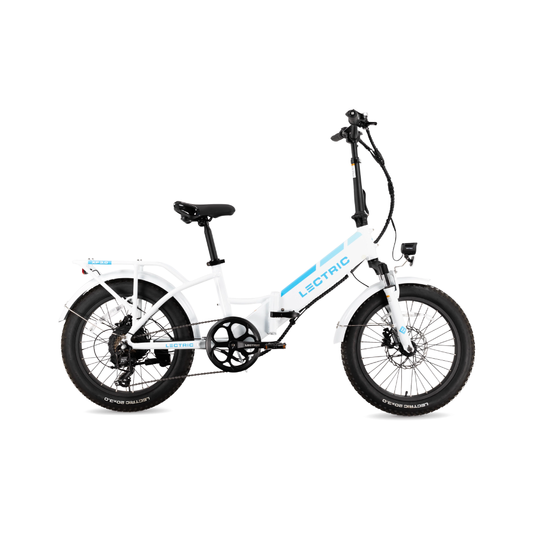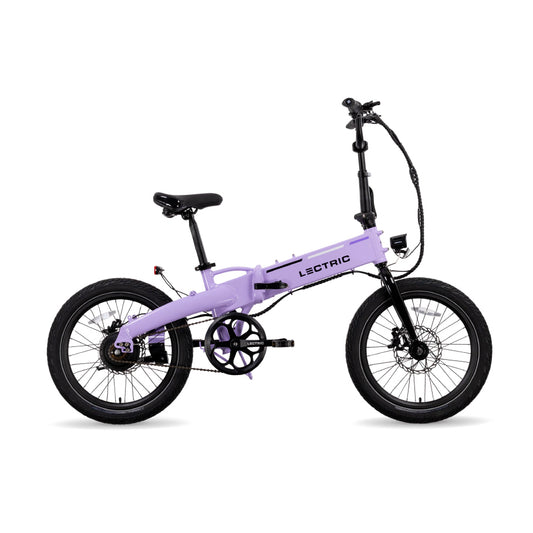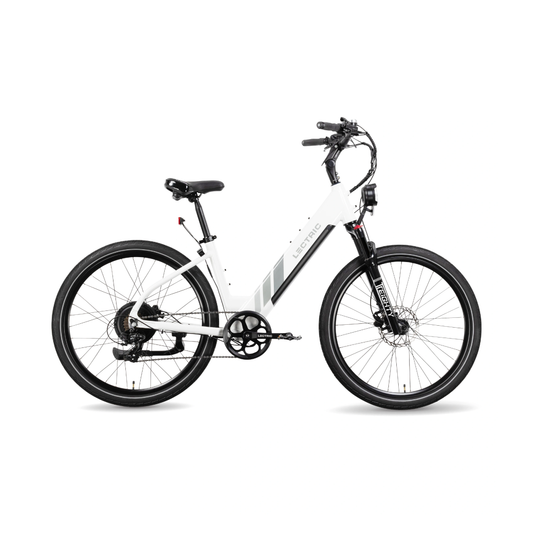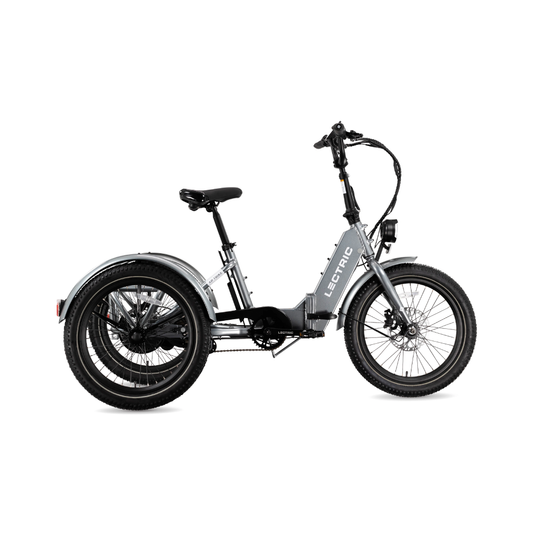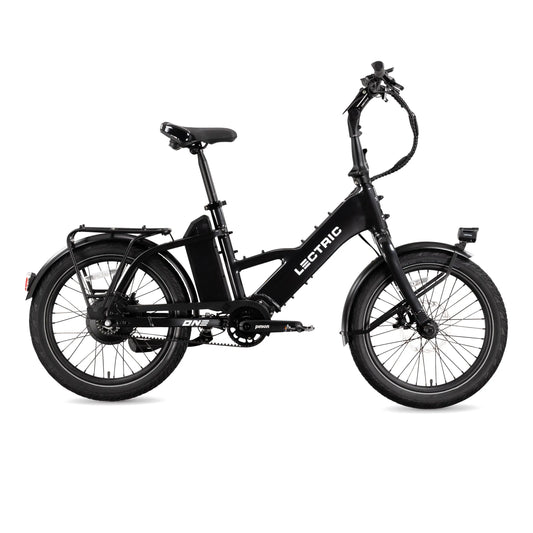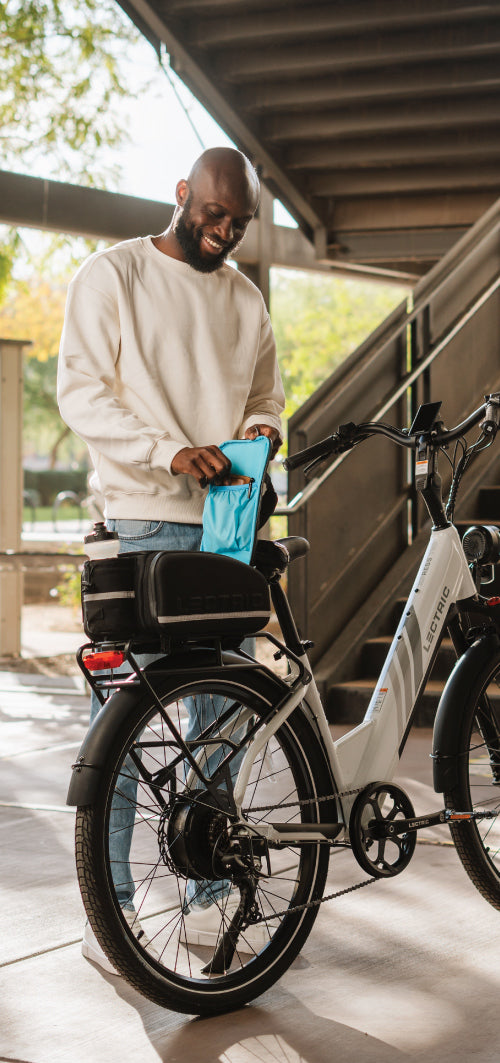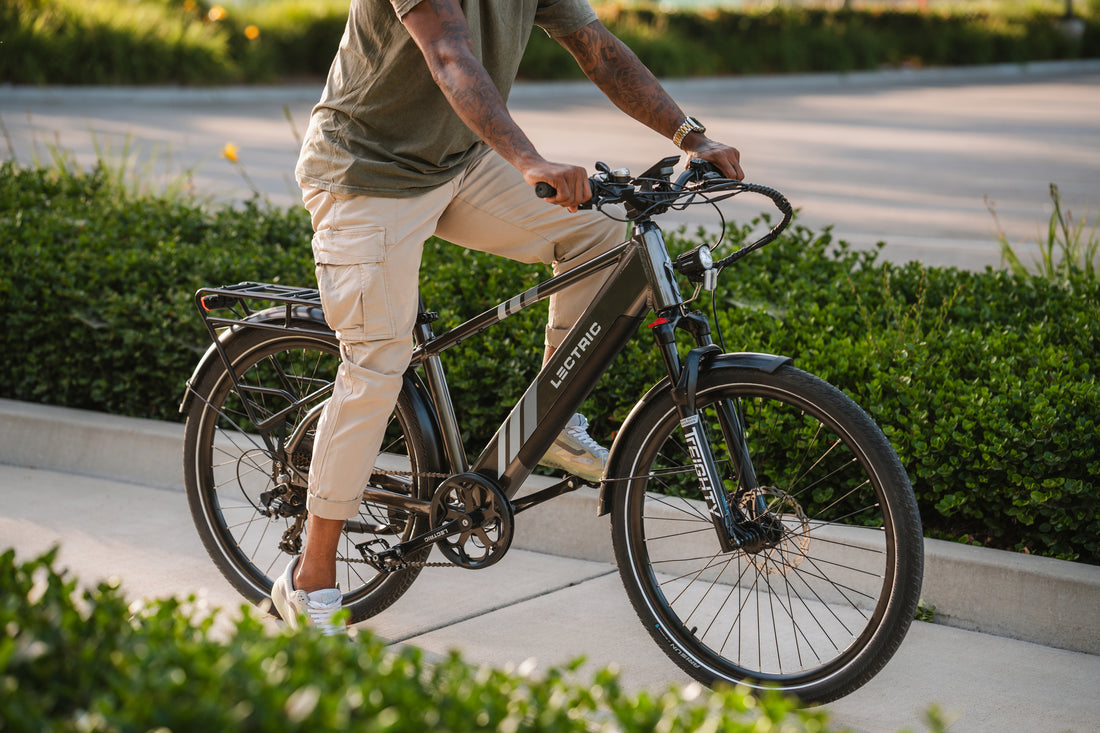How Much Do Electric Bikes Weigh?
Due to the added motor and battery, eBikes are heavier than traditional bikes, typically weighing between 45 and 70 pounds, compared to regular bikes that average 10 to 30 pounds. While this extra weight impacts handling, portability, and performance, the added power and convenience make eBikes an ideal choice for riders looking for a more effortless travel experience.
Factors That Affect Electric Bike Weight
Frame Material
The frame material of an eBike plays a significant role in its weight. Most electric bikes are built with aluminum frames, offering a perfect balance of strength, lightweight construction, and rust resistance.
- Steel: With a density of 7.85 g/cm³, steel is the heaviest frame material, known for its exceptional strength and durability. Chromoly steel offers natural shock absorption, providing a smoother ride. Though heavier than other options, it’s ideal for riders who prioritize toughness and comfort.
- Aluminum: With a density of 2.7 g/cm³, aluminum is much lighter than steel, offering a balance of strength, rust resistance, and affordability. It’s commonly used in commuter and recreational bikes, delivering a stiffer, more responsive ride compared to steel.
- Carbon Fiber: With a density of 1.4-1.6 g/cm³, carbon fiber is the lightest frame material. It offers an excellent strength-to-weight ratio, making it perfect for performance-oriented riders, although its stiffness may reduce comfort on longer rides.
- Titanium: With a density of 4.5 g/cm³, titanium falls between aluminum and steel in weight. It’s renowned for its strength and corrosion resistance, offering a smooth, durable ride similar to steel but with less weight, typically used in high-end or custom eBikes.
Motor and Battery Size
The motor and battery are the core components of an electric bike, and their size directly impacts the bike's weight. Larger motors and higher-capacity batteries generally add more weight, but they also provide greater power and longer range.
- Motors: A 500W motor typically weighs around 7 to 9 pounds and offers a solid balance of power and efficiency, ideal for flat terrain and moderate hills. In contrast, a 750W motor adds slightly more weight, around 8 to 11 pounds, but provides greater torque and higher speeds, making it better for steep hills and faster riding.
- Batteries: Batteries weigh 7 to 10 pounds, with larger batteries offering longer range. Integrated batteries help distribute weight more evenly for better balance and ride quality.
Added Features and Accessories
Many eBikes come with added features that enhance the riding experience but can also increase the bike's weight. Features such as baskets, cargo carriers, and racks are all additional weight. While these features provide convenience and comfort, it’s essential to balance them with your need for a lighter, more portable bike.
Types of eBikes and Their Weights
Here’s a breakdown of different types of eBikes and their average weights to give you a better idea of what to expect:
- Commuter eBikes: These eBikes are designed for everyday travel and often weigh between 50 to 60 pounds. They typically feature larger batteries and motors for longer rides but maintain a balance between portability and comfort.
- Folding eBikes: Designed for portability and easy storage, folding eBikes are among the lightest options, averaging 35 to 50 pounds. These bikes are ideal for urban riders or those with limited storage space. Lectric’s XP Lite Series, for instance, is a great example of a lightweight folding eBike that weighs 49 pounds.
- Off-Road eBikes: Built for adventures off the beaten path, these bikes tend to be on the heavier side, typically weighing between 55 to 70 pounds. These bikes often include added suspension, larger tires, and more robust frames, all of which add weight but improve durability and performance on rugged terrain.
- Fat-Tire eBikes: Known for their stability and versatility on rough surfaces like sand or snow, fat-tire eBikes weigh between 60 to 80 pounds. Their larger tires and reinforced frames contribute to their heavier weight, making them ideal for adventurous riders.
Why eBike Weight Matters
The weight of an eBike affects more than just how easy it is to lift or carry. It also impacts your ride quality, handling, portability, and storage, all factors you should consider when buying a bike.
Portability and Storage
One of the most significant advantages of lightweight eBikes is their portability. Lighter eBikes are easier to carry up stairs, load into cars, or bring onto public transportation. If you live in an apartment building or travel frequently, you’ll want an eBike that’s easy to fold and store.
Handling and Performance
The weight of your eBike also affects how it handles. Lighter electric bikes are generally easier to maneuver, making them a better choice for urban environments or tight spaces. For beginners or petite riders, a lighter bike can provide a more comfortable and confident riding experience.
On the other hand, heavier eBikes, such as those with fat tires or large batteries, offer more stability at higher speeds and on rough terrain. If you prioritize power and off-road capability, a heavier bike might suit your needs better.
Battery Life and Range
While a larger battery increases the weight of your eBike, it also extends its range. Riders who need to travel longer distances may prefer a heavier eBike with a larger battery. However, for shorter commutes or recreational rides, a smaller battery (and a lighter overall bike) may be sufficient. However, it’s always smart to bring a charged spare battery on any ride. Check out our eBike parts to extend your battery life and keep you equipped in a pinch.
Lectric eBike Model Weights
Weight is a key factor when choosing an eBike, as it influences portability, handling, and ease of use. Here’s a detailed breakdown of the weight for each Lectric eBike model:
XP 3.0
The XP 3.0 is a great all-around eBike, providing power and portability, and features a folding frame for easy transport and storage.
- Bike weight: 57 lbs
- Battery weight: 7 lbs
- Total weight: 64 lbs
XP Lite
As the lightest model, the XP Lite is perfect for urban riders who prioritize portability without sacrificing performance.
- Bike weight: 42 lbs
- Battery weight: 7 lbs
- Total weight: 49 lbs
XP Trike
The XP Trike offers extra stability and is ideal for riders looking for comfort, especially for those needing a more secure ride.
- Bike weight: 62.5 lbs
- Battery weight: 7 lbs
- Total weight: 69.5 lbs
XPedition
As a cargo-focused eBike, the Lectric XPedition is built for heavy loads and long distances, making it ideal for transporting cargo or covering extended ranges.
- Bike weight: 61 lbs
- Battery weight: 7 lbs
- Total weight: 68 lbs
XPeak
Designed for off-road enthusiasts, the XPeak is built for tackling tough terrains and outdoor adventures.
- Bike weight: 59 lbs
- Battery weight: 8 lbs
- Total weight: 67 lbs
Lectric ONE
A commuter’s dream, the Lectric ONE combines efficiency and light weight for quick urban commutes with minimal hassle.
- Bike weight: 48 lbs
- Battery weight: 7 lbs
- Total weight: 55 lbs
XPress
The Lectric XPress provides a versatile riding experience for both urban streets and light trails, offering durability and performance.
- Bike weight: 50 lbs
- Battery weight: 8 lbs
- Total weight: 58 lbs
Want more eBike Education?
Check out these livin' Lectric blogs for more!
Deciphering Specialized eBike Terminology
ABC's of eBikes!
Electric Bikes vs. Electric Scooters
Unchain your Ride - Belt Drive eBikes
Cold Weather eBike Riding Tips
eBike Weight FAQs
Q: Are electric bikes heavy to lift?
A: While electric bikes are heavier than traditional bikes, typically weighing between 45 to 65 pounds, Lectric eBikes are designed with built-in handles to assist with lifting. Many models, like the XP 3.0 and XP Lite, also feature folding frames, making them easier to carry and load into vehicles or up stairs.
Q: Are e-bikes too heavy to pedal?
A: Despite their added weight, eBikes are not too heavy to pedal, thanks to their pedal-assist systems, which provide power when needed. If the battery runs out, pedaling will require more effort than with a traditional bike, but it's still manageable. Many Lectric models are engineered to ensure a smooth ride, even in manual pedaling mode.
Q: are eBikes too heavy for bike racks?
A: Most eBikes can be mounted on standard car bike racks, but it’s crucial to check the weight capacity of the rack before loading. Removing the battery can help reduce the bike's weight. For heavier models, such as cargo or trike eBikes, using platform-style racks designed for higher weight limits is recommended to ensure safety and stability during transport.
